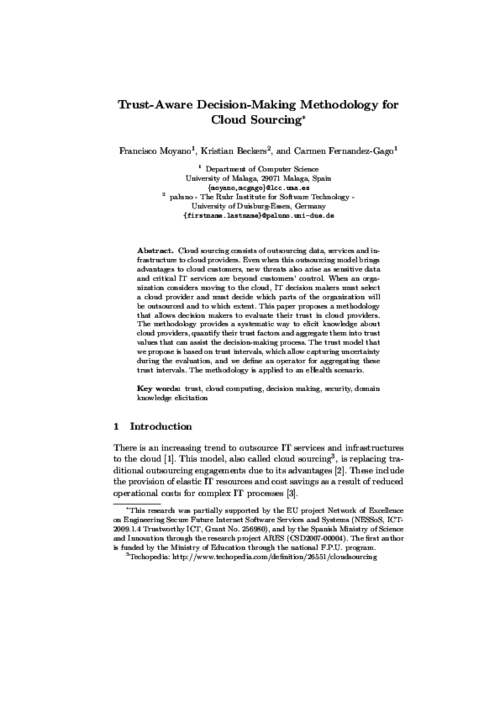 ]
] Accountability and Security in the Cloud, M. Felici, and C. Fernandez-Gago Eds., Lecture Notes in Computer Science 8937, Springer International Publishing, pp. 114-125, 2015. DOI
Abstract
In this paper we tackle the problem of privacy and confidentiality in Identity Management as a Service (IDaaS). The adoption of cloud computing technologies by organizations has fostered the externalization of the identity management processes, shaping the concept of Identity Management as a Service. However, as it has happened to other cloud-based services, the cloud poses serious risks to the users, since they lose the control over their data. As part of this work, we analyze these concerns and present a model for privacy-preserving IDaaS, called BlindIdM, which is designed to provide data privacy protection through the use of cryptographic safeguards.
26th International Conference on Advanced Information Systems Engineering (CAiSE 2014), M. Jarke, et al. Eds., LCNS 8484, Springer, pp. 136-149, 06/2014. DOI
Abstract
Cloud sourcing consists of outsourcing data, services and infrastructure to cloud providers. Even when this outsourcing model brings advantages to cloud customers, new threats also arise as sensitive data and critical IT services are beyond customers' control. When an organization considers moving to the cloud, IT decision makers must select a cloud provider and must decide which parts of the organization will be outsourced and to which extent. This paper proposes a methodology that allows decision makers to evaluate their trust in cloud providers. The methodology provides a systematic way to elicit knowledge about cloud providers, quantify their trust factors and aggregate them into trust values that can assist the decision-making process. The trust model that we propose is based on trust intervals, which allow capturing uncertainty during the evaluation, and we define an operator for aggregating these trust intervals. The methodology is applied to an eHealth scenario.
